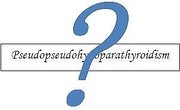The English language is a mix of many different languages. Understanding a base word vs. a root word can be confusing. The difference between a base word and a root word may seem simple, but they are actually two entirely different things. One can stand alone, while the other has its roots in ancient language and relies on the addition of other parts of words to be complete.
Basic Parts of a Word
There are three parts to a word. These are:
- Root
- Prefix
- Suffix
Most of the words used in the English language have their origins in Latin or Greek. This is the main meaning of the word. A prefix or suffix added to the root word or base word changes its meaning or defines it in a more concise way.
What Is a Prefix?
A noun prefix is a word or letter or even a number that is placed before a main word. A verb prefix is when something at the beginning is added. An example is, “A preface was prefixed to the history book.”
A short list of prefixes includes:
- Mis- bad or incorrect
- Non- not
- Pro- before or forward
- In- without
- Un- opposite or against
- Re- back or again
- De- away, reverse, from or down
- Dis- opposite or away
- Im- without
For example, the prefix de- when added to the word code changes the meaning of the word and is more concise. The prefix dis- added to the word agree creates an opposite meaning of the original word.
What Is a Suffix?
A group of letters that is placed after a root word is a suffix. Some examples of suffixes include:
- -less without or not affected by
- -er comparative
- -ible capable of
- -able capable of
- -al relating to
- -ness a state or a condition
- -ly in what way
- -est superlative
- -y diminutive or denoting a condition
For instance, the base word comfort with the suffix -able turns it into comfortable. The base word strong with the suffix -est becomes strongest.
What Is a Root Word?
Root words in the English language hail from Latin or Greek words. The root word, or word root, from these ancient languages cannot stand alone. It does not have a prefix at the front of the word or a suffix attached to the end. It is the main lexical unit of a word family and can’t be broken down into words that can stand on their own with meaning.
A few examples of root words include:
- Aud: From Latin, it relates to hearing. Root words include "audible" and "auditorium."
- Acri: It means bitter and is the base of the root word "acrimony."
- Corp: This relates to the body and is found in the word "corporate" or "corporation."
- Deca: From the Greek, this means "ten," such as "decade."
What's a Base Word?
A base word is a word that can stand on its own. It conveys full meaning on its own and doesn’t need a prefix or suffix to carry its connotation.
Happy is a base word and not a root word because it means what it is. Add the prefix un- and it completely changes its meaning into an entirely different word, which is unhappy.
The word view is a base word. Add the suffix -er, and it denotes someone who looks at a view: viewer. Now, add the prefix re- to the base word and you change the word to review. Add both the prefix and suffix for yet another change to the base word view: reviewer.
Related Articles
References
Writer Bio
Kimberley McGee is an award-winning journalist with 20+ years of experience writing about education, jobs, business trends and more for The New York Times, Las Vegas Review-Journal, Today’s Parent and other publications. She graduated with a B.A. in Journalism from UNLV. Her full bio and clips can be seen at www.vegaswriter.com.











